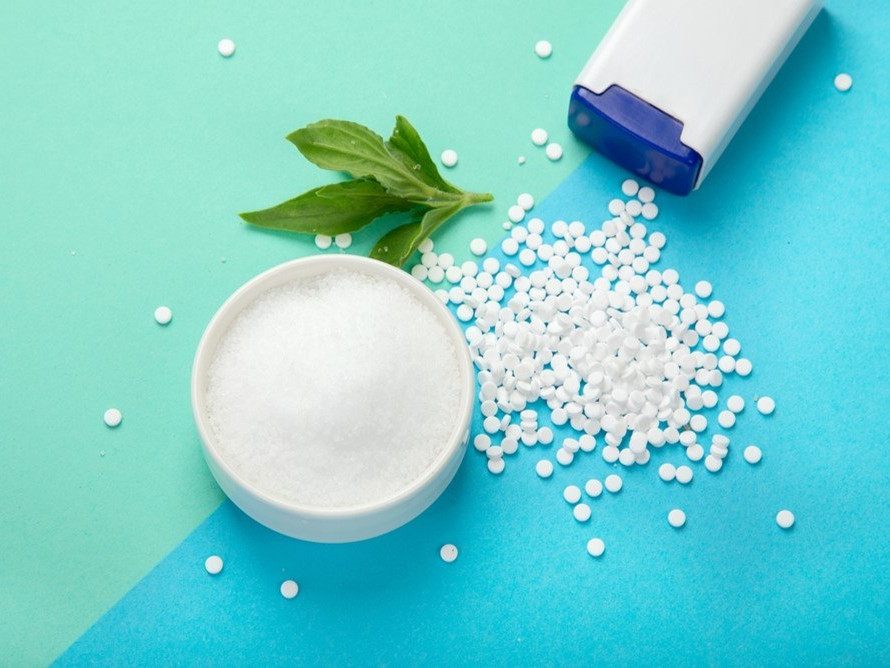The Bitter Truth About Artificial Sweeteners: What the Industry Won’t Tell You
In an era obsessed with calorie counts and sugar reduction, artificial sweeteners have crept in as the shiny, zero-calorie heroes of the food and drink industry. You’ll find them in everything from “diet” drinks to “sugar-free” yoghurts, chewing gum, protein powders, and even in some medications. But before you pat yourself on the back for choosing the "healthier" option, it’s worth pausing to ask: are artificial sweeteners really doing you any favours?
What Are Artificial Sweeteners?
Let’s name names. Common artificial sweeteners include:
- Aspartame (found in Diet Coke, sugar-free gum, and many protein powders)
- Saccharin (Sweet’N Low)
- Sucralose (Splenda)
- Acesulfame K (often in combination with others in diet drinks)
- Cyclamate (banned in the US, but still used in some countries)
- Neotame (a chemical cousin of aspartame)
- Stevia and monk fruit (marketed as "natural" alternatives, but often still ultra-processed)
They’re marketed as zero-calorie solutions for weight control, blood sugar management, and dental health. Sounds like a dream, right? Sadly, it’s closer to a nightmare.
Sweet Lies: How They Trick Your Brain
Your brain is wired to respond to sweet tastes with a cascade of hormonal and metabolic reactions. When you consume artificial sweeteners, the sweet taste triggers your brain to prepare for a hit of sugar — but that sugar never comes. This disconnect can cause all sorts of chaos.
Research suggests that artificial sweeteners:
- Increase cravings for actual sugar and carbohydrates
- Stimulate appetite, making you more likely to eat
- Disrupt satiety signals, so you never feel quite full
- Condition your brain to expect (and demand) high levels of sweetness
Over time, this rewires your taste preferences, making real food — like fruit, vegetables, and whole grains — taste bland and unsatisfying. You end up trapped in a cycle of craving, overconsuming, and never feeling satisfied.
The Gut Feeling You Shouldn’t Ignore
Artificial sweeteners don't just mess with your brain — they also wreak havoc on your gut. Your gut microbiome (the trillions of bacteria that live in your digestive tract) plays a massive role in immunity, weight regulation, and mood.
Studies have shown that artificial sweeteners can:
- Disrupt the diversity and balance of gut bacteria
- Increase insulin resistance and blood sugar spikes
- Contribute to inflammation and metabolic dysfunction
So while you’re choosing the “sugar-free” option, you may actually be increasing your risk of weight gain, prediabetes, and gut-related health issues. It’s the ultimate irony — in the name of health, you’re sabotaging it.
Deception by Design
The food and drink industry has deliberately created confusion around artificial sweeteners. With aggressive marketing, misleading labels (“no added sugar”, “guilt-free”, “naturally sweetened”), and cleverly packaged "wellness drinks", the industry continues to promote these products as healthy lifestyle choices. The truth? They're profit-friendly, not people-friendly.
Why do companies love artificial sweeteners?
- They’re cheap to produce
- They prolong shelf life
- They let brands claim health halos without changing the addictive flavour profile of their products
And with growing consumer concern over sugar, artificial sweeteners offer a convenient workaround — one that keeps you hooked and returning for more.
The Real Sweet Spot: What You Can Do
- Read labels carefully – Look for any of the names listed above. If it says "sugar-free", dig deeper.
- Retrain your taste buds – Cut down on all sweetened foods (even natural ones) to reset your palate.
- Focus on whole, unprocessed foods – Your body (and brain) thrive on real nutrition, not chemical trickery.
- Support your gut – Eat a variety of colourful plants, fermented foods, and fibre to nourish your microbiome.
- Drink water – Plain or infused with herbs, citrus, or cucumber if you need variety.
Final Thought
Artificial sweeteners aren’t a health hack — they’re a marketing illusion. The short-term “wins” of reduced sugar and calorie intake are overshadowed by long-term effects on your metabolism, brain chemistry, and gut health. It’s time to stop falling for the sweet lie and start choosing real, nourishing foods that support your health from the inside out.
Because when it comes to health, nature knows best — not the lab.











